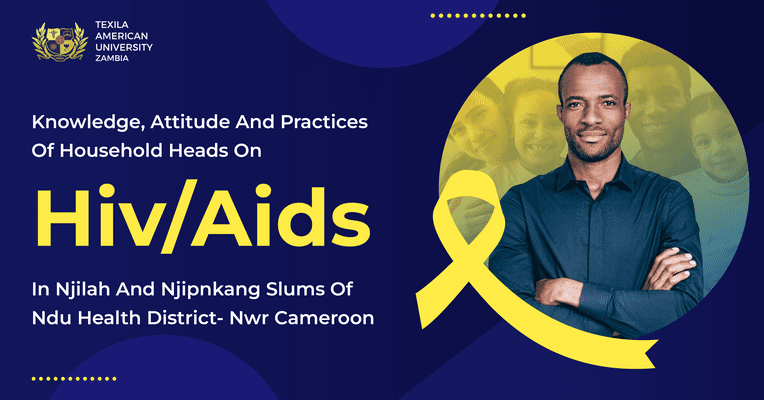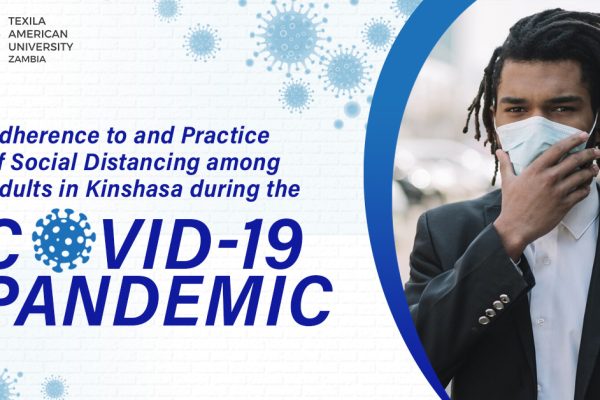|
Tired of Reading? Please listen to the blog
|
Abstract
Introduction
The incidence of HIV/AIDS has been on the rise since the discovery of HIV as the cause of AIDS in 1984. In Ndu District, the HIV prevalence at 10% is higher than that of the whole country of 3.3%.
The study objectives: To establish the knowledge, attitude and practices among the household in Njilah and Njipnkang towards HIV/AIDS in Ndu District.
Study design: Descriptive cross-sectional study.
METHODS: Structured questionnaires were administered to 341 household heads in both Njilah and Njipnkang slums. Two Focus Group Discussions were conducted one for men in Njilah and another for Women in Njipnkang. Two in-depth interviews were also done. Data was analyzed by the SPSS 18.0 version.
RESULTS: Out of the 341 respondents, 56.3% were females. Majority (75.7%) was married and most of them knew what HIV/AIDS is. Unprotected sexual intercourse was known by many (94.3%) as the major route of HIV/AIDS transmission, other modes included sharing of needles, MTCT, and unsafe-blood transfusion. Although many (91.2%) said that they knew how to prevent themselves, they still had multiple sexual partners (50.1%) with low use of condom (48.3%). Age, income, education and number of sexual partners were tested against condom use and showed no association.
Conclusion
People in these slums knew what HIV/AIDS is, modes of transmission and how to prevent themselves. However, the practices, behaviors and their attitudes were contrary to this. There is need for intensive health education on behavior change, promotion of condom use and provision of VCT Services.
Author
Denis Bambo Ndzibidtu, BTh, Dip.ComHlth, MPH











